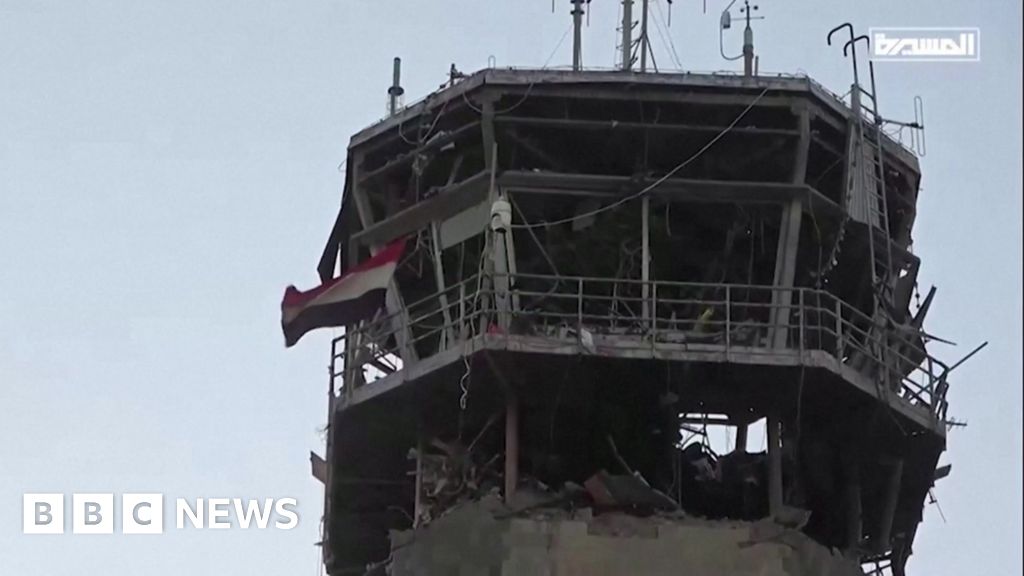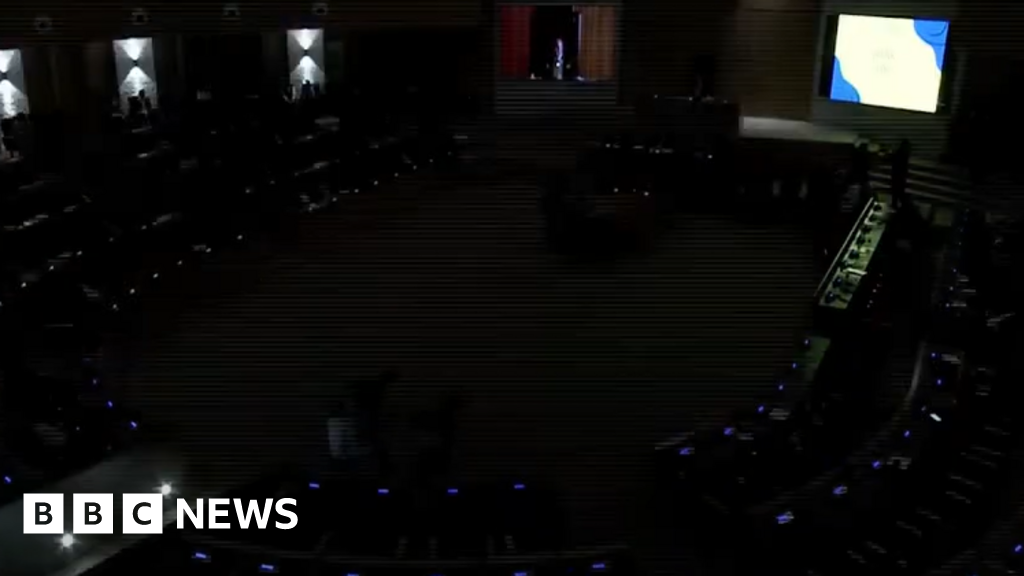BASHAR al-Assad packed planes with two tonnes of cash worth £200m and sent them to Russia.
The tyrant cowardly escaped the country just hours before rebels captured his palace in their lightning blitz that ousted his regime.
But in the years before, Assad flew banknotes out of the country to Russia.
Records show tonnes of cash being sent from Damascus to Moscow between 2018 and 2019, the FT reports.
The payments came at a time when Assad's regime was being propped up by Russia's fighter jets and the Wagner mercenary group.
Once the cash was shifted, Assad's family also began buying up luxury properties in Moscow as well as paying for food and military help.
The money was mostly sent in Euros and USD between March 2018 and September 2019, records show.
There were 21 flights from March 2018 to September 2019 with money worth over $250m.
Russian trade records from export data service Import Genius, show in 2019 a plane carrying $10m in $100 bills was sent on behalf of the Syrian central bank.
The central bank then airlifted in around €20mn in €500 notes in February 2019.
Syria was under severe economic sanctions after Assad carried out horrific acts of repression against his own people - including the use of chemical weapons.
A source said that by 2018 foreign reserves were almost depleted and the Assad was paying for Wagner and grain imports in cash.
Disguises to disappearing jets…how DID a sneak despot Assad out of Syria with moments to spare as rebels stormed in
Putin personally granted political asylum to Assad after he was forced to flee - and now he and his family are looking to build a new life in Russia.
The Syrian dictator and his family may be living in one of the 20 Moscow apartments his extended family owns, looking to maintain their luxurious lifestyle despite being in exile.
Purchased in the prestigious Moscow City district, the apartments are said to be worth more than £30 million in recent years, showing just how safe the Assads are in their pal Putin's country.
The majority of the apartments are in the City of Capitals complex - a twin-towered skyscraper that sat once as the tallest in Europe.
Following the outbreak of civil war in 2011, Assad battled to keep his regime alive against the rebels.
Russia protected Assad at the UN and then sent its jets in 2015 to give the tyrant air dominance.
Putin also only officially sent a small number of special forces troops to prop Assad up.
However, Russia was also sending private military contractors like Wagner to help win the war on the ground.
Putin could now lose his military bases in the country with negotiations ongoing over what will happen to them.
Russia is reportedly trying to keep control of Khmeimim Air Base and Tartus naval base.
The bases are key for Russia's power projection with the Tartus naval base the only port on the Mediterranean for Putin.
However, Western leaders want the new Syrian government to boot out the Russians if they want full recognition.
Assad cowardly told his office he was going home before fleeing to the airport to be smuggled out of the country.
The tyrant didn't even tell some of his closest family with one of his cousins shot dead by rebels in an ambush trying to flee Damascus.
Assad told almost no one amongst his closest staff or advisers that he was planning to flee the country, Reuters reports.
He continued to act like he would stay and fight - even meeting with army chiefs hours before he escaped telling them to keep fighting and that Russia was coming to help.
Assad told his staff at the end of Saturday when he finished work that he was going home.
He even told his media adviser to come to his home and write a speech.
But, when she got there, she didn't find the tyrant who had instead fled to the airport.
The Assad Dynasty

THE Assad dynasty in Syria began with Hafez al-Assad - who seized power in 1971 through a military coup and established an authoritarian regime.
His rule focused on centralised government control, military strength, suppression of dissent, aligning Syria closely with the Soviet Union, and an anti-Israel stance.
He established a cult of personality and corruption flourished as loyalty to Hafez became the most important value.
Bashar was not the first choice to succeed his father, with his elder son Bassel groomed to take over the role.
Bashar was working as an ophthalmologist at Western Eye Hospital in London when Bassel died in a car crash in 1994.
Suddenly, Bashar became the heir apparent and was called back to Damascus to be groomed for leadership.
He spent six and a half years learning the ropes from his father and working in the military.
Hafez died from a heart attack in 2000 and, with the loyalty of his party, transferred power to Bashar establishing the first Arab dynastic republic.
Initially, there were hopes for liberal reforms under Bashar, but hopes faded as he instead continued his father's repressive policies.
When protesters rose up in 2011, Assad brutally sought to crush them with harsh violence.
But, he lost the support of many of his people and brought about the Syrian Civil War.
In 2013, the cruel dictator even used chemical weapons on rebel areas as he did anything to stay in power.
The civil war dragged on killing hundreds of thousands, destroying cities, and opening the way for ISIS to flourish.
Eventually, Assad gained the upper hand after Iran sent in Hezbollah crack forces and Russia sent in jets to bomb rebels and mercenary group Wagner to fight them.
It appeared that Assad was on the brink of winning the war earlier this year with the rebels confined to an area in the northwest of the country.
Assad chose not to negotiate with the rebels and instead sought to defeat them completely.
But the rebels launched a surprise offensive on November 27 and swept aside Assad's corrupt and disloyal army.
After seizing Damascus in a swift and decisive offensive, rebel forces declared victory and announced that the city was "free of Assad."
The dictator fled Syria in total humiliation - having to issue a statement through the Russians he had resigned the presidency and left the country.
Bashar has now been given refuge in Moscow and is currently under Russian protection.
The collapse of the 54-year-old Assad dynasty ignited celebrations across Syria.
In the capital, thousands poured into the streets, waving rebel flags and lighting flares.
Statues of Assad and his late father, Hafez, were toppled in symbolic acts of defiance.





















 English (US) ·
English (US) ·